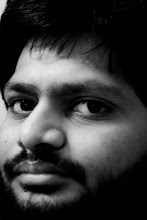Seppuku
Seppuku's narrative style is very similar to that of Rashoman, in that the main plot is revealed in the words of characters in the story and give different perspectives. But where Rashoman uses the differing versions of the same story, Seppuku uses different stories as witnessed by two characters.
The movie requires a little knowledge about the samurai culture. You can read the wikipedia entry on seppuku (hara-kiri) which would give you some idea of what goes on in the film. The samurai code of honour is quite well known, I guess, and it plays an important part both in their culture and in this film.
The samurais were prosperous when Japan was a basically ruled by numerous feudal lords (daimyo) and there were numerous wars and clashes in Japan where the samurais came in very handy.
The film is set in the 17th century when Japan had been more or less unified. A time of peace, as the film observes. For people whose lives depended on war, this was disastrous. Dialogues such as "But in a world of peace there is no hope" and "But in such times of peace, all was in vain" seem to be cynical on the surface but as the character played by Tatsuya Nakadai says, "But in times of peace, the honored warrior is no longer in demand."
If you think about it, all samurai films you have ever watched have had some kind of war or major conflict in the plot. And the emphasis is on the action and the samurai is dignified by being elevated to a super-human status in combat. Here you see a more human side of the samurai. You see what happens when a samurai is unemployed and poor and what choices he makes in times of crisis.
Nakadai is an amazing actor and he does justice to this role of a veteran samurai who has been through a lot and he conveys the extreme sadness and anger through his intense eyes like no one else can. He portrays a man who has lost everything and who wants a bit of revenge. Without him, this film might not have been so great. He really carries the film through with his performance and he looks every bit the weathered father as well as the skilled samurai that he plays.
But what I liked more about the film was its cinematography. Black and white film is such a beautiful medium but to use it well requires real skill and even though, the cinematographic technique is pretty traditional in this film, it is used very effectively.
But I am usually very partial to cinematography. There is no aspect of this movie that I think was less than perfect. Kobayashi's direction is, as usual, brilliant. The background score is evocative of the situation. I also liked the fact that the dialogues were pithy. Nothing in excess. Measured and just right.
-------------
PS. Alok calls it the best samurai movie.


